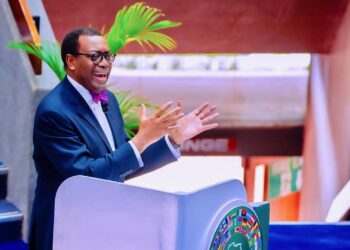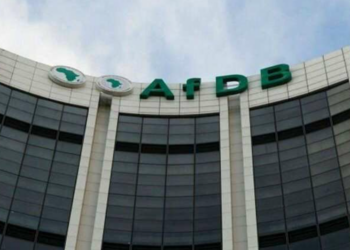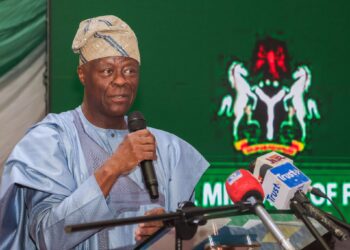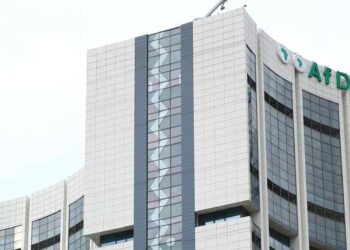The African Development Bank (AfDB) has said that Africa’s green growth market size is at $2.97 trillion.
Kevin Chika Urama, AfDB’s Chief Economist and Vice President of Economic Governance and Knowledge Management said this during his presentation at the Mobilizing Private Sector Financing for Climate and Green Growth in Africa to the South Korean Institute for Economic Policy (KEIP) in South Korea.
Urama highlighted the fact that green growth positively correlates with real gross domestic product (GDP) growth, climate resilience, and readiness.
He also pointed out the fact that between 2023 to 2024, half of the top ten fastest-growing economies will be in Africa.
While addressing Africa’s lack of green investments, particularly from the private sector, Urama said that the continent needs up to $2.7 trillion cumulatively (that is $242.4 billion annually), over 2020–30 to implement its updated nationally determined contributions (NDCs).
He also said that out of the cumulative green bonds’ issuance estimated at $2.2 trillion globally between 2006 and 2022, Africa accounted for only about 0.2% (or $4.7 billion), which is the lowest among world regions.
Urama stated further that out of the global voluntary carbon market valued at $2 billion in 2021, Africa’s share was only 6.2% ($123 million). Meanwhile, Africa accounted for 41% of blended finance between 2019-2021.
He however noted that Africa is facing some barriers to leveraging natural capital for climate and green development.
He identified some of these barriers to include; weak regulatory structures and institutions, natural capital accounting, tax avoidance, and illicit financial flows as well as organized crimes and resource theft.
Green investment opportunities in Africa
According to Urama, foreign investors need to be aware that across Africa, there are green investment opportunities in the following sectors;
Agriculture – market size projected at $1 trillion in 2030
Energy – $1.03 trillion of investment opportunities through 2030
ICT – a market projected at $104.2 billion in 2023
Transport – projected demand for EV batteries by 2030 (22% annual growth).
During his presentation, Urama provided the following recommendations for African countries:
- Develop long-term strategies and implementation roadmaps.
- Implement coordinated debt treatment.
- Adopt strategic industrial policies, including local content and franchising.
- Boost domestic revenue mobilization and improve Public Finance Management.
- Invest in project preparation at national and regional scales.
He also advised multilateral and development finance institutions to:
- Expand concessional financing and grants for capacity building.
- Provide more risk-agnostic, catalytic capital through guarantee instruments.
- Revisit risk appetite and reduce profitability targets.
- Scale the use of innovative financing mechanisms.
- Support system-wide sustainable development transitions to diversify risk.
Meanwhile, he urged the private sector, credit rating agencies, and the international community to:
- Exercise market leadership and stewardship.
- Review methodologies and broaden rating frameworks for credit rating agencies.
- Encourage developed countries to honour their commitments to securing our global commons.
- Champion and support collective reform of the global financing architecture.
























